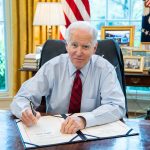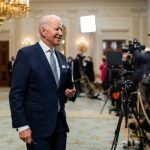The Biden administration is attempting to salvage a trade deal called the Indo-Pacific Economic Framework for Prosperity (IPEF), which aims to strengthen ties with allies in the region and counter China’s growing influence. This deal, however, has been plagued by disorganization and awkwardness, leading to a less than ideal outcome. The administration hopes to roll out the trade partnership at the upcoming Asia-Pacific Economic Cooperation (APEC) summit in San Francisco, where Chinese dictator Xi Jinping will also be in attendance.
The Return of TPP: Biden Admin Squabbles over Asia Trade Deal as Xi Jinping Visit Looms https://t.co/bqpiUposdW
— Trump War Room (@TrumpWarRoom) November 13, 2023
Governor Gavin Newsom of California has even gone as far as rolling out the red carpet for Xi, seemingly positioning himself as more China-friendly than Biden. San Francisco even magically made their homeless population vanish overnight to present a more presentable appearance for Xi’s arrival. It’s clear that the Biden administration is trying to walk a fine line between countering China’s economic clout and not appearing too soft on China.
One of the main hurdles the administration has encountered is convincing developing nations to meet American workplace and environmental standards. This has proven to be difficult, as these countries are hesitant to agree to the expensive standards pushed by the U.S. labor movement. Despite the challenges, the administration remains optimistic about achieving meaningful progress and a new framework for regional economic cooperation.
The Washington Post briefly mentions China’s appeal to developing nations by not imposing Western human rights demands, including LGBTQIA++ rights. China, known for its use of slave labor and disregard for environmental regulations, is unlikely to push others to improve their workplace standards or environmental practices. This stark contrast between the U.S. and China’s approaches to international relations further complicates the Biden administration’s task of rallying support for its trade deal.
On top of all this, the ongoing Israel-Hamas war has caused tension among APEC member states with Muslim governments or significant Muslim populations. Indonesia, for instance, holds the world’s largest supply of nickel, a key component of electric vehicle batteries. However, U.S. insistence on workplace and environmental standards has complicated negotiations with Indonesia, which already faces criticisms for its detrimental impact on the environment and indigenous tribes.
Overall, the Biden administration’s efforts to piece together a trade deal in the wake of China’s influence are facing numerous obstacles. The administration hopes to at least achieve a limited economic pact that will unite APEC nations against China’s aggression and potentially signal China’s preference for stability over confrontation. However, it seems unlikely that significant progress will be made at the upcoming APEC summit. The Biden administration’s priorities appear out of sync with those of key APEC members who are less averse to doing business with China’s dictatorship. The path to a successful trade deal remains uncertain, with low expectations for significant advancements in key areas such as the digital economy and high-standard rules.




